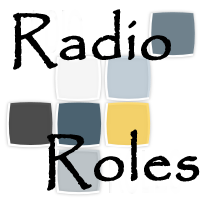
Radio Programming Roles
Examples of Advocacy

- The Philippines provides a media environment appropriate to this kind of treatment. In Mindanao station DXFE in Davao started a national outcry against offensive daytime TV viewing by inviting listeners to the station to sign a petition. The response was overwhelming. Soon station manager Arnel Tan had enough names to take to the Davao civic leaders, challenging them to take action. This attracted the attention of the wider news media and soon reached the attention of leaders in Manila. It resulted in the TV program being dropped from the schedule.
- Advocacy can be aimed at specific policy makers, or it can aim at changing wider attitudes. In Mongolia "street children" , those too poor to attend school and visible as dirty and persistent sellers on the streets in Ulaanbaatar, are regarded as bad children and punished for their poverty by strong prejudice. A radio series "Hidden Treasures" highlighting the skills, talents and charms of these children aimed to change this negative perception, not by head-on confrontation, but by cheerful and quirky portraits.
- Earlier in the 1980s a Manila faith healer had gained great prominence through radio. Using the stage name of Johnny Midnight he claimed to mediate healing to his listeners by a process known as toning . He adopted the name because his late-night radio show started at midnight. Johnny Midnight invited the listener to place a glass of water on top of the radio. After conducting a series of incantations he told the listener to drink the water and receive healing.
- The program provoked a great stir in Manila, raising the fascination in occult practice and causing confusion in the churches. FEBC medium wave station DZAS intervened. The station took off its regular programs, replacing them with a day-long marathon which investigated the occult practice from a biblical perspective and invited listeners to phone in with their questions. As a direct result many were greatly helped. Some lit bonfires to burn occult books and other paraphernalia. It was not long before the toner was off the air!
- FEBC’s Chinese broadcasters feel it necessary to hold back and restrain themselves from freely talking about related topics. However, there are many social issues and Gospel broadcasts may highlight these and the actions that should be taken by believers in the name of care. For example, the Angels of Justice Action in 1998 highlighted one of their trials. Though it did not exert great influence on society, audience letters showed that they greatly supported a similar stance and the suggestions offered. This on-air campaign advocated action to stop injustice in society.
- We know from experience that daily radio programs have brought together communities traditionally split by religious belief. For example, in some areas Muslims and Christians have worked together in preparing their own community programs. As a result, healing has resulted, trust has been built up and an element of peace has been restored to communities.
Link to Role 4 Discussion Questions
Link to Role 5
Last updated 15 Jul 2009